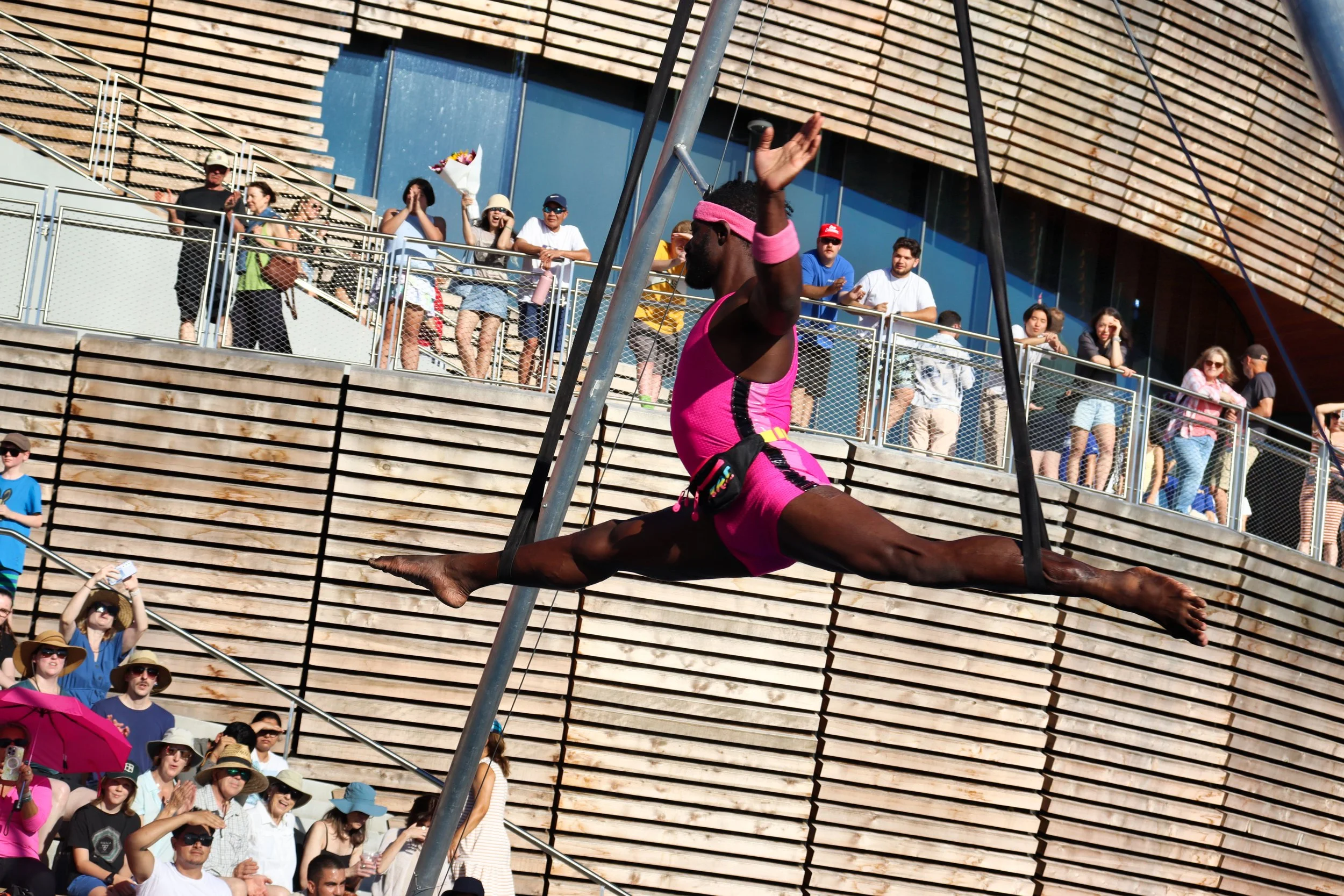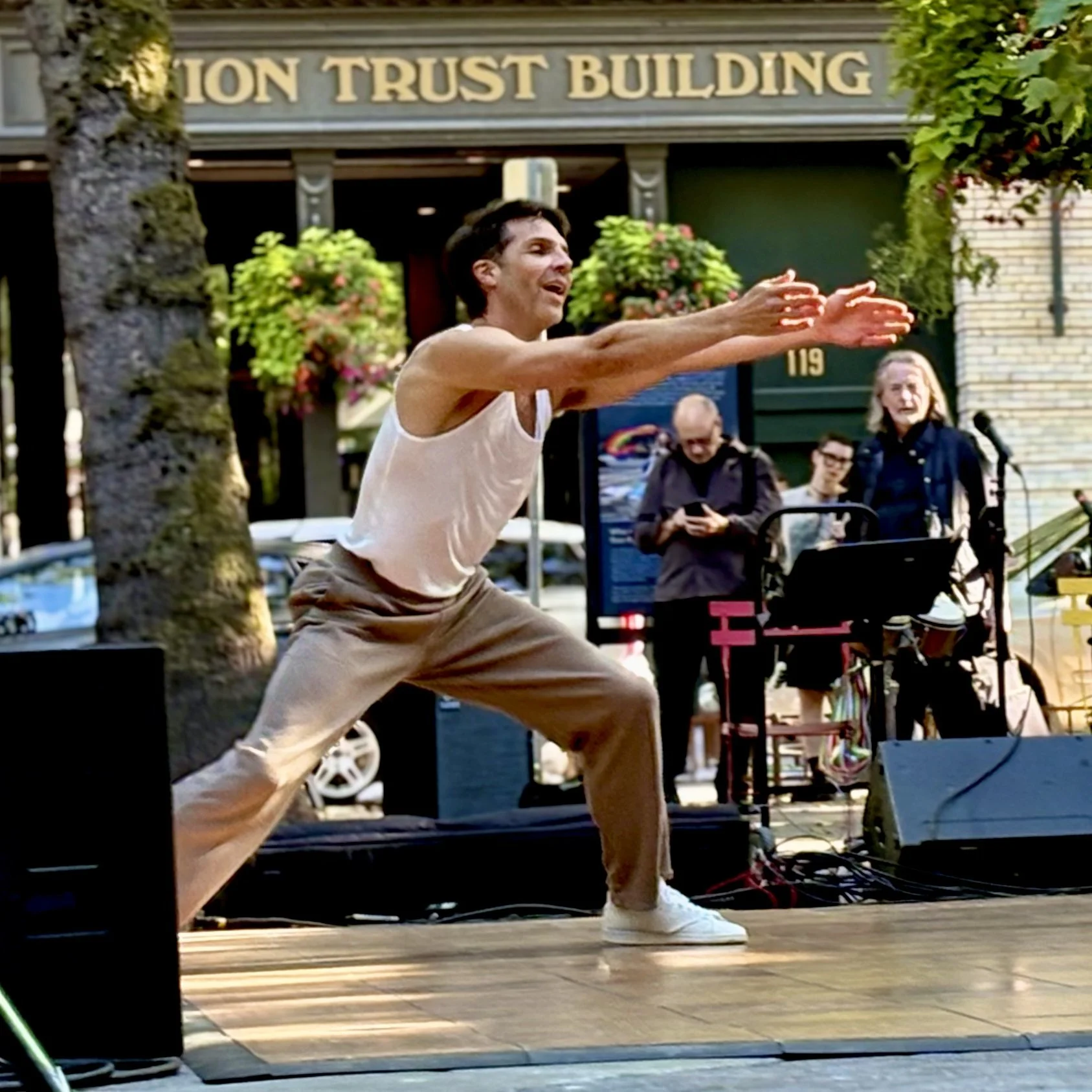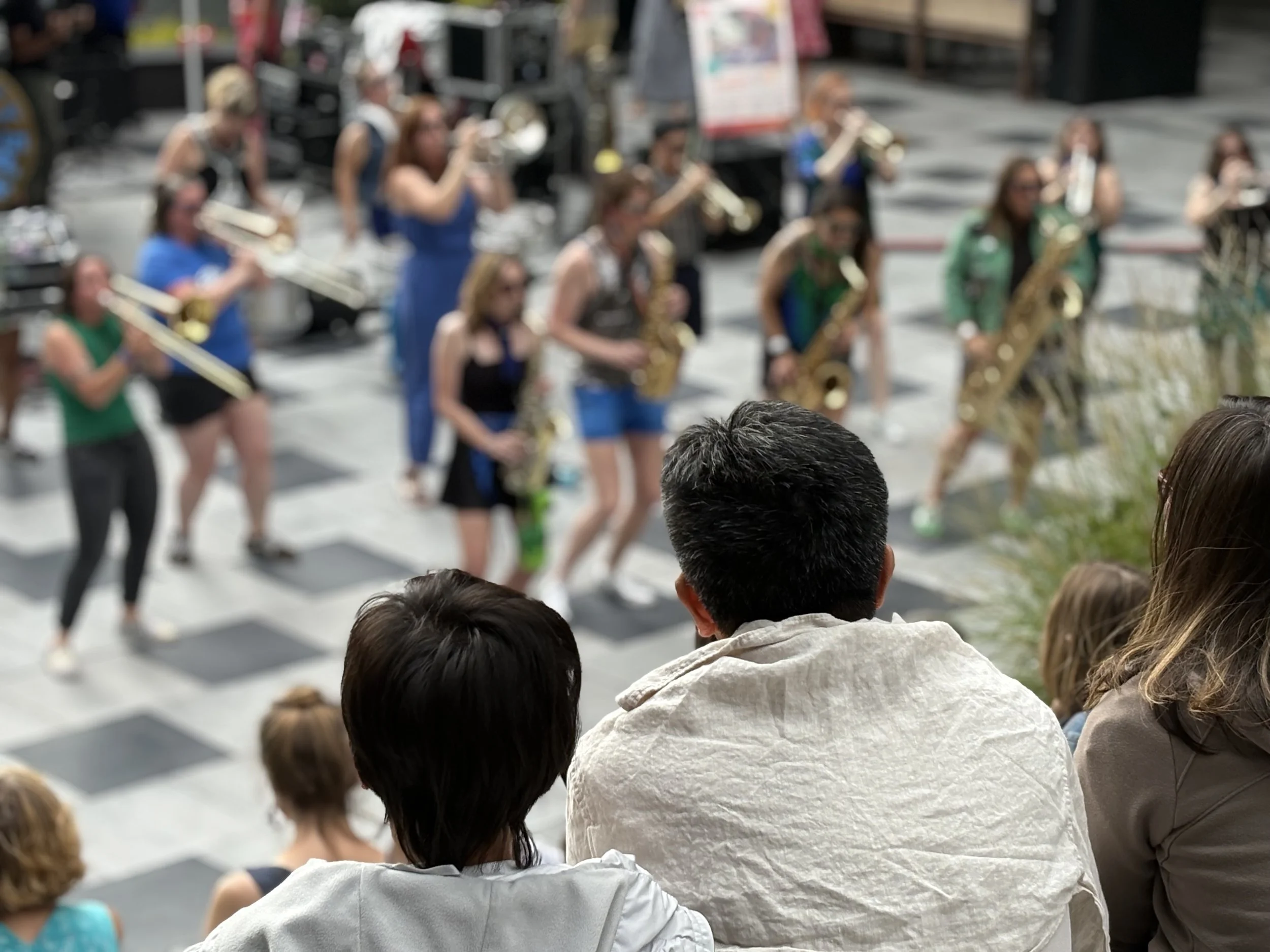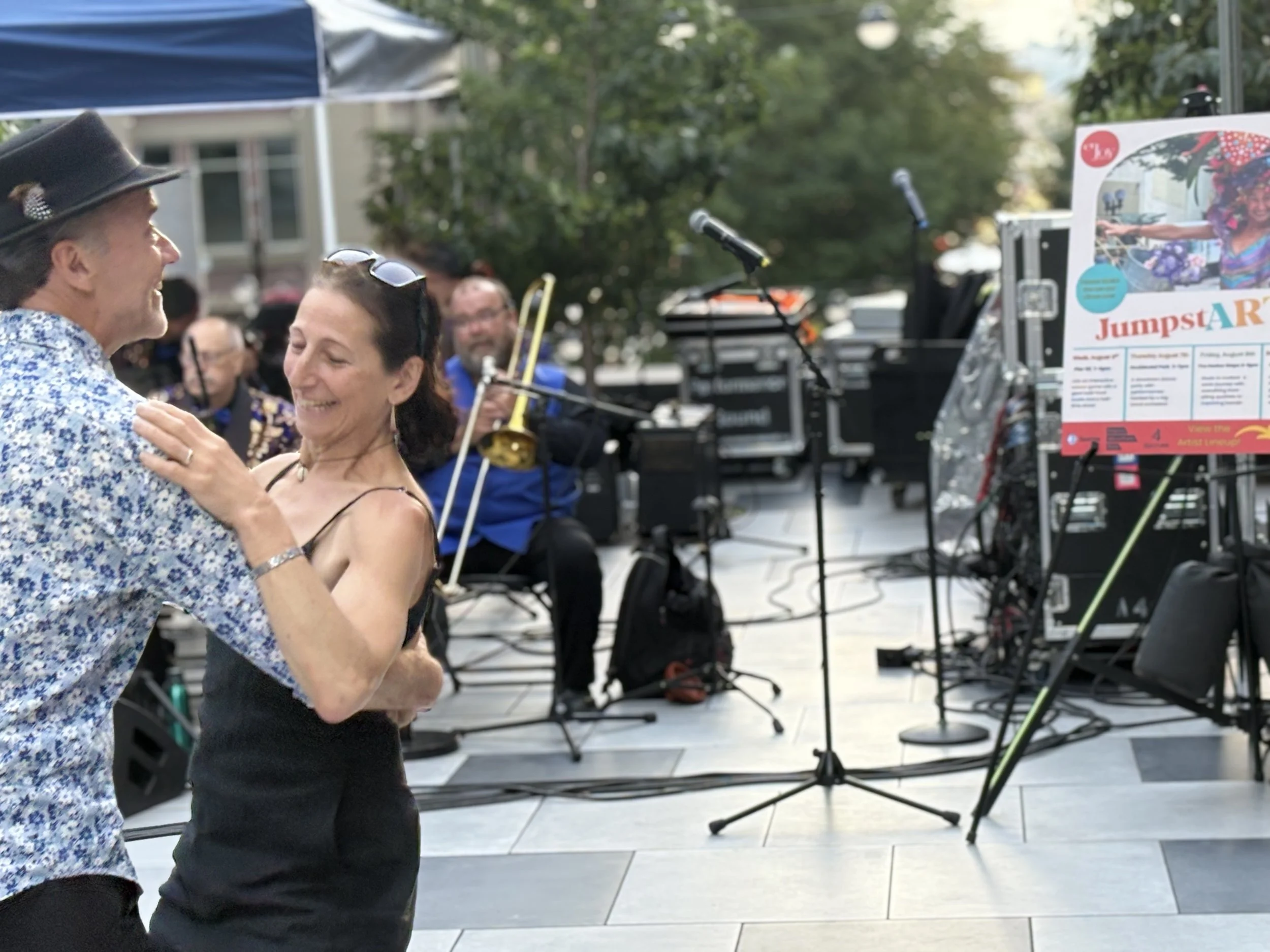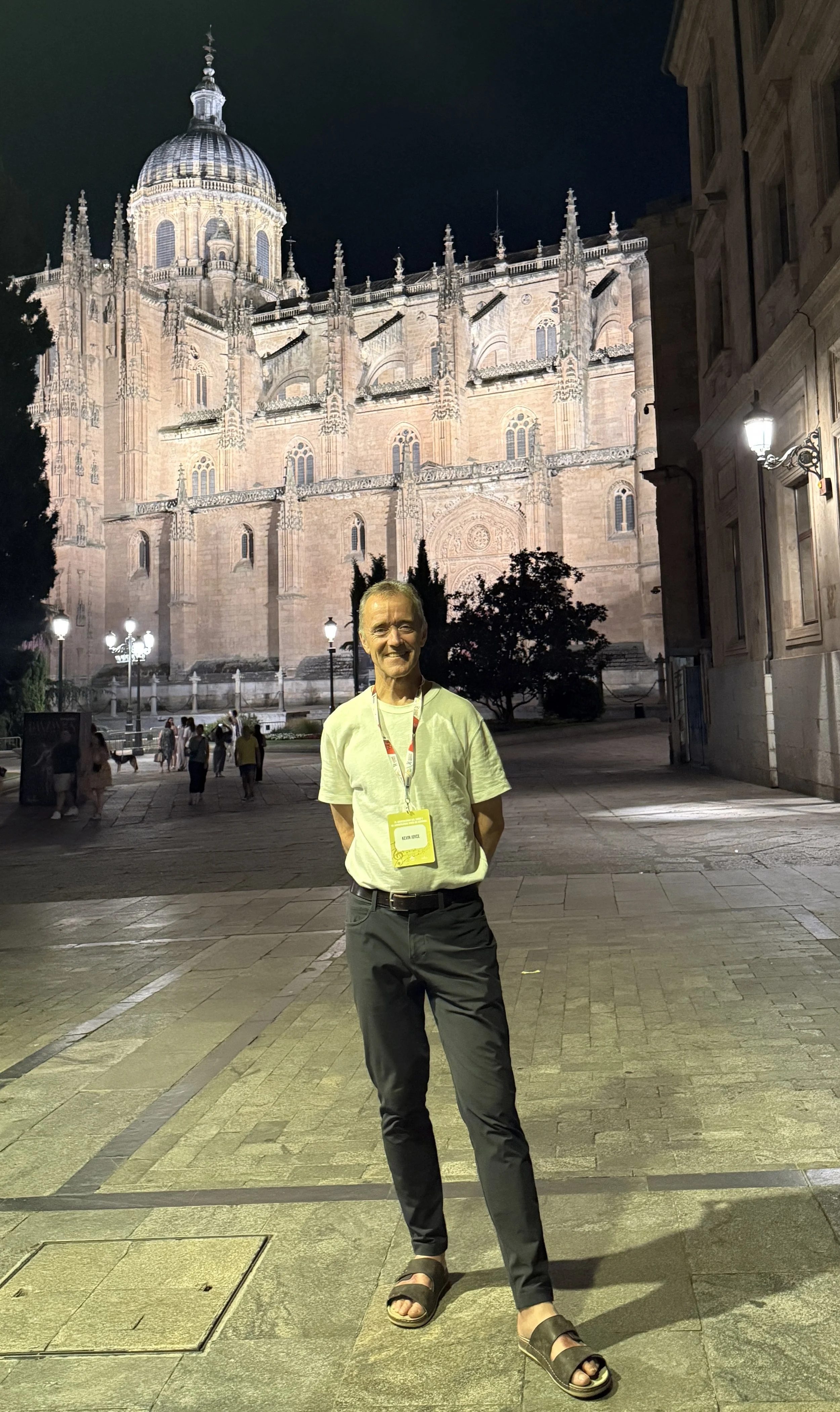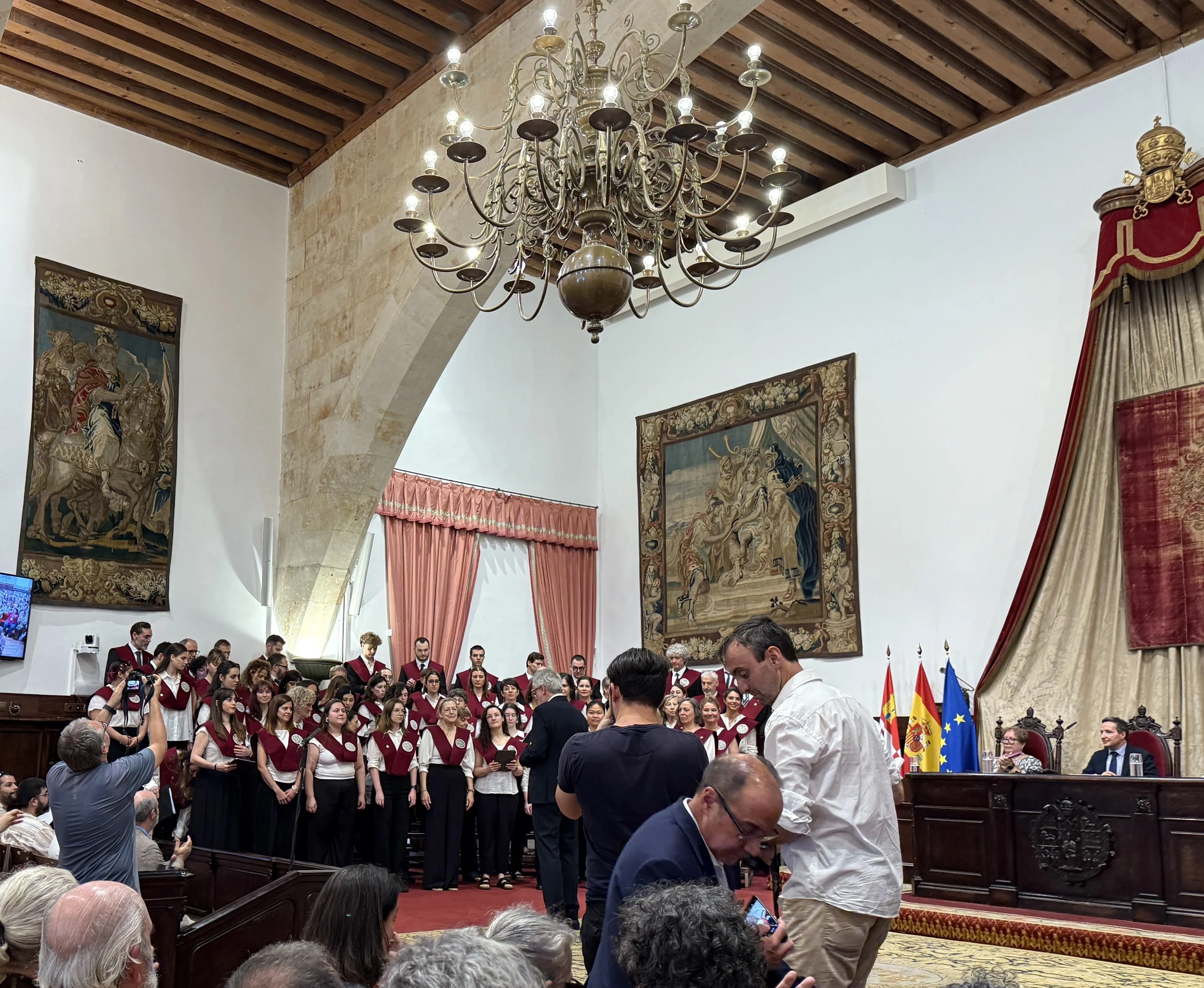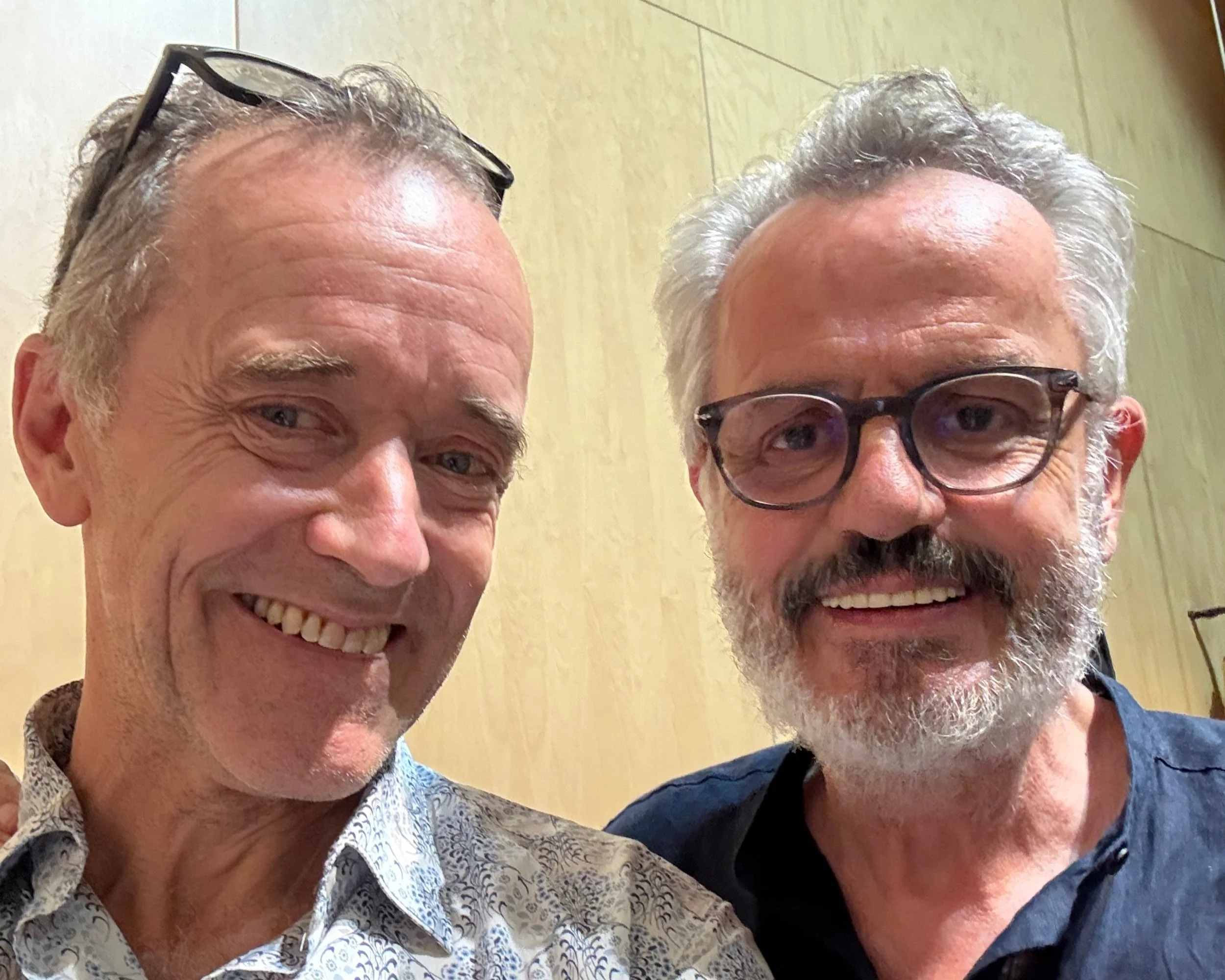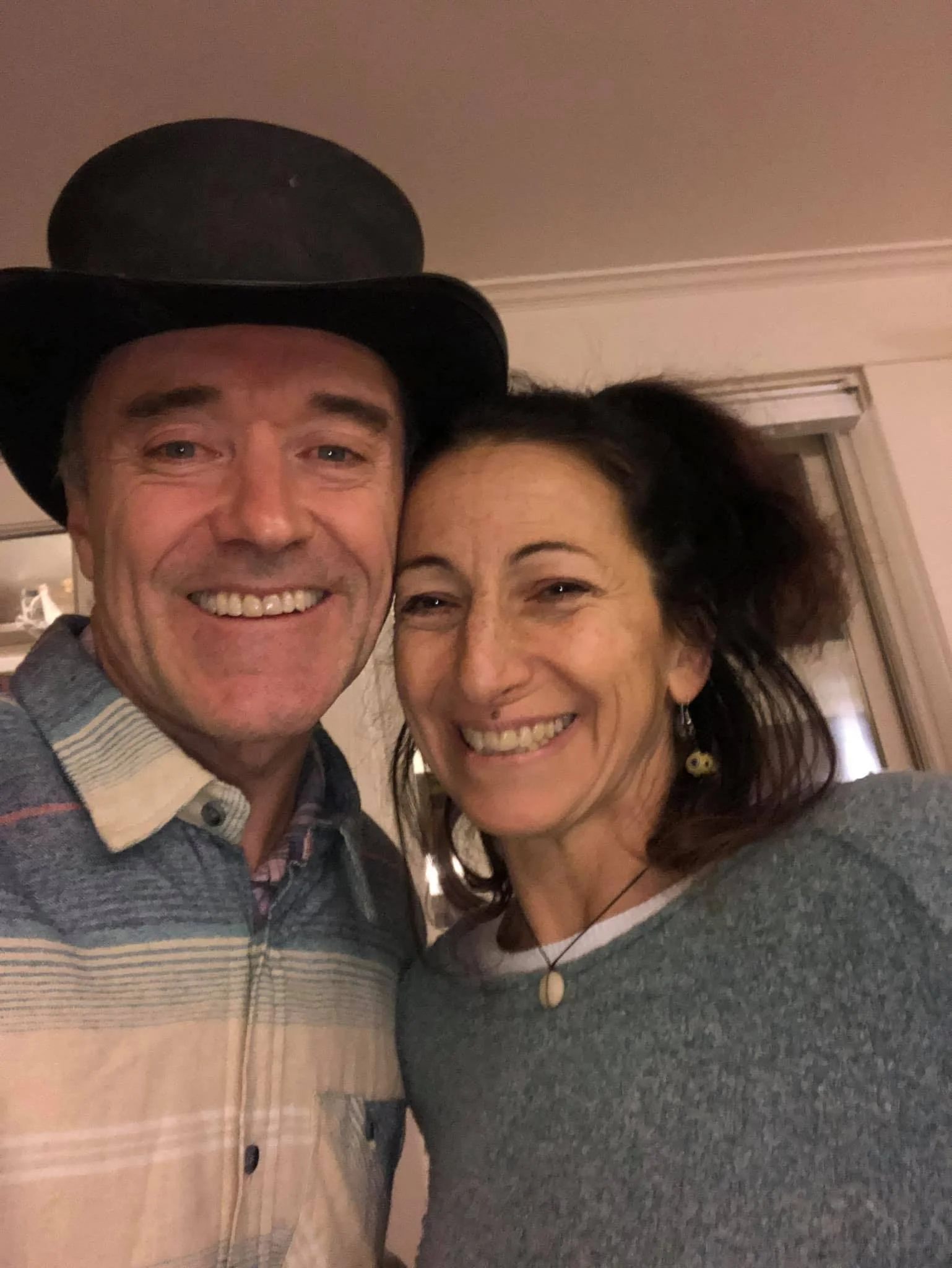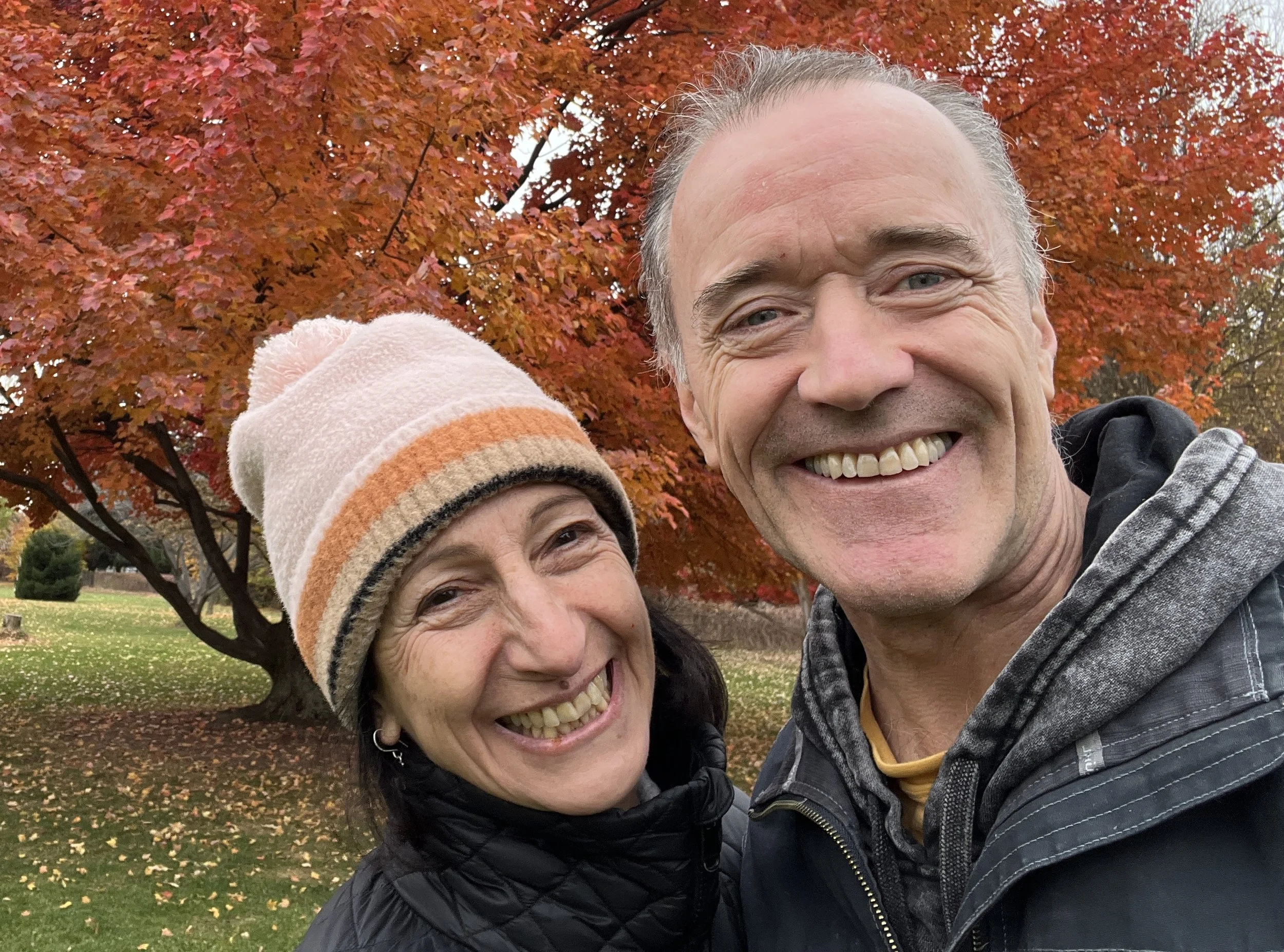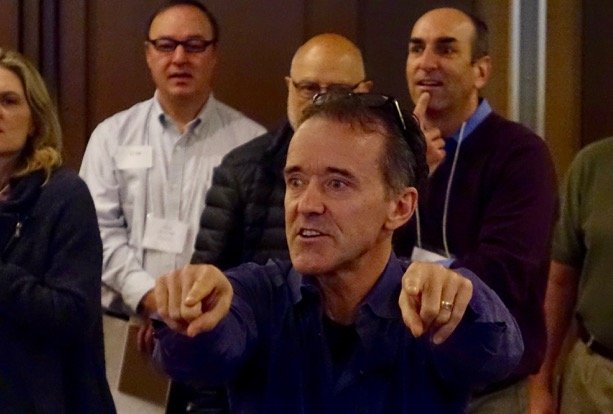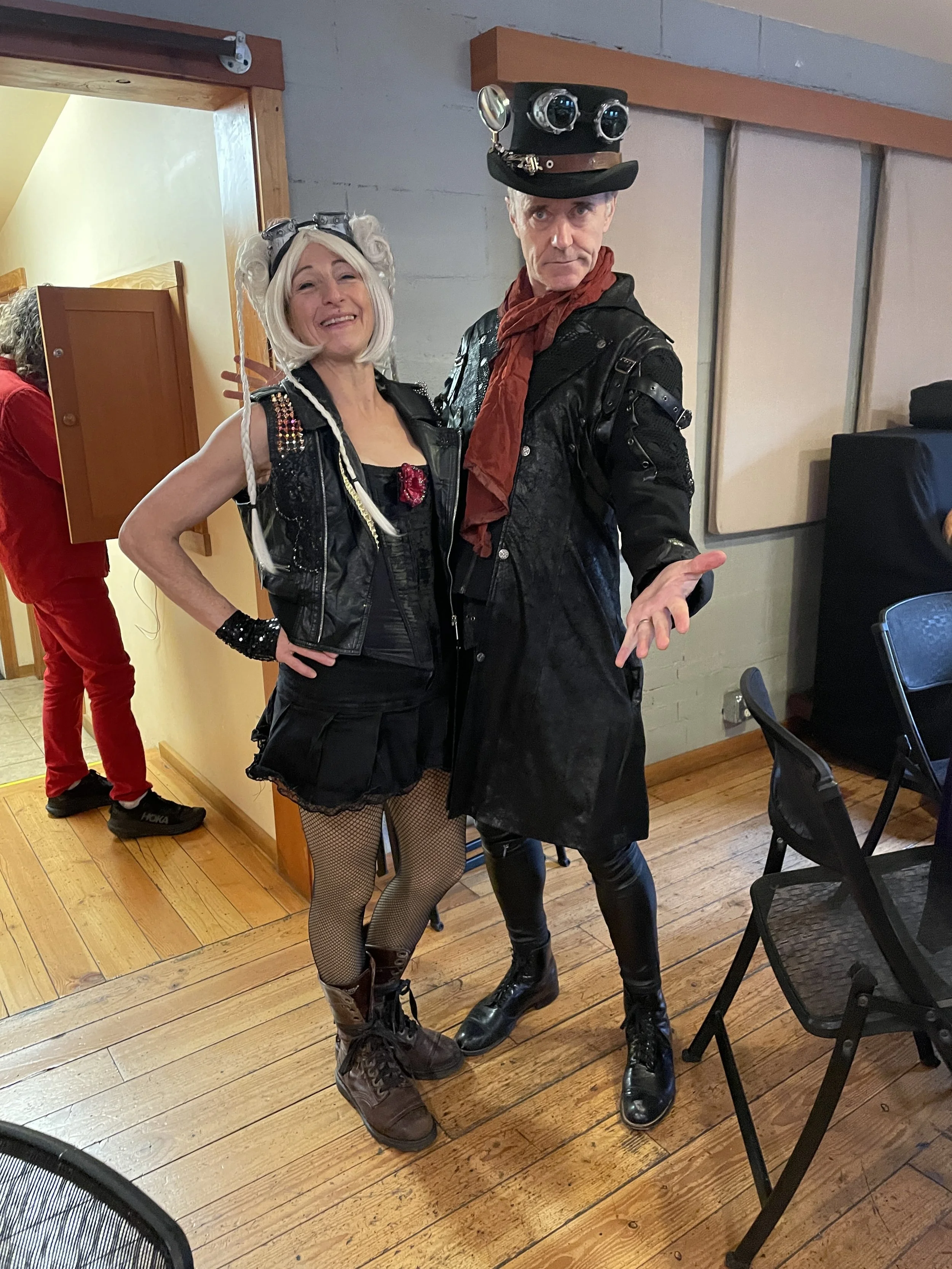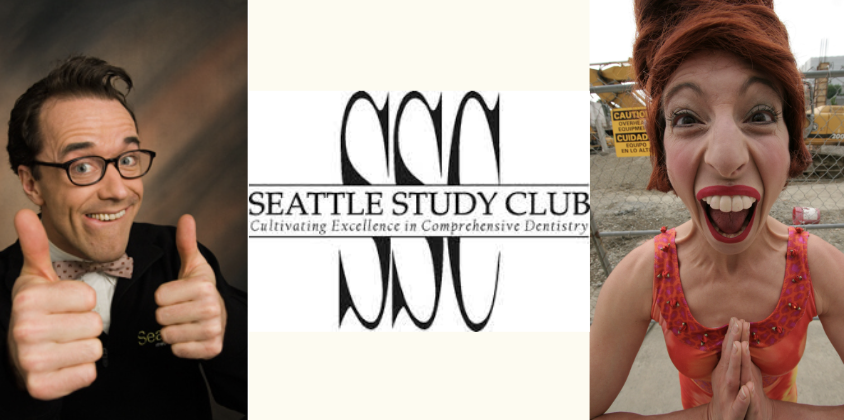Photo by Bhama Roget
We’re feeling such tremendous gratitude for everyone that helped make JumpstART! a smashing success! Creating free, public art feels like a critically important thing to do right now – for those of us who are dedicated to work as artists, those who help put it all together as producers, and those who have the vision to create the funding opportunities in the first place.
EnJoy brought together over 100 local artists, ages 11 to 75, across cultural/racial/social demographics, to create a wildly enjoyable, entertaining and experimental four days of free live performance throughout downtown.
Hats off to the Mayor’s Office of Arts and Culture for creating Hope Corps, which is funding scores of projects (called Activations) large and small across Seattle. It’s a tremendous vision for uplifting the city and celebrating both Seattle’s vibrancy, and the local Creative Economy. All of the support we received from Hope Corps went to hiring and paying artists and production team. We are massively grateful to King County’s 4Culture for the first of 3 years of Sustained Support – funding which is allowing us to dedicate several months to preparing for and producing this amazing 4 day extravaganza,
The experiment started on Day 1 with Earth Soccer Jeopardy on Pier 62. A 4 ft soccer ball on a miniature field, teams of energetic high school players, and audience interaction (they were the ones who played Jeopardy, whenever a team scored!). Crowds marveled, laughed and seriously got into the action. Anticipating FIFA next year, creating an interactive public game, and celebrating environmental awareness (there were some smart 12 year olds answering some tough questions!), it was a great first iteration of a happening that could really have legs, as they say.
Day 2 was Dance day, and Occidental Park in Pioneer Square saw an incredible diversity of performance amidst a bustling Thursday night Art Walk thanks in part to our DSA Space partners. Hundreds of people all day long - coming and going and staying and coming back – marveled at everything from a 22min immersive Romeo and Juliet by PNB’s Lucien Postlewaite (Pictured) and Clara Ruf Maldonado, to Hip Hop maestra Tracey Wong, to the Big Band swing dance lessons for an eager and wide-eyed public by Joy Street Orchestra. It all felt so alive and just plain fun!
On Day 3 we set up, with the help of Luke Kehrwald and Performance Sound, a remarkable afternoon of music. Pre-teen grunge rockers, followed by classical strings, a European Opera diva and the incredible Filthy FemCorps – a female, non-binary and trans marching band. I mean, come ON!! Tons of Seattle visitors sat at the amazing Harbor Steps (SUCH a great partner!) and swayed, bopped, danced and smiled at the most eclectic combination of fabulous musicians we could assemble. And it came off beautifully!! Thank you to Seattle Drum School for showing up in such a big way!
Our final day was all about circus, and featured student groups, emerging and established companies from Seattle and beyond. The School of New Circus Arts was there in force with their youth companies, followed by Vivian Tam’s Chrysalis Circus, and then Terry Crane and Acrobatic Conundrum wowed the crowd. And finally (after persevering through their crane truck breaking down in Everett while en route to the event!), the remarkable Up! Up! Up! from Bellingham showed up and blew the crowd away with humor, tremendous skill and pizazz.
Martha is catching her breath, having produced this whole shebang, and is feeling both relieved and gratified by a hugely rewarding process. Kevin supported with innumerable production details, the kinds you think about in advance, and the other kind too! Team EnJoy was blessed once again by the presence of Stage Manager Extraordinaire Susanna Pugh, who, as she always does, makes the whacky complex madhouse look smooth and impressively professional.
What a way to put a button on Summer 2025. Thank you to all who came out to see the shows or supported from a distance. This is good work, we’re all in it together, and we’ll continue to thrive amidst strange and challenging times by gathering in community and celebrating our collective creativity and joy.


